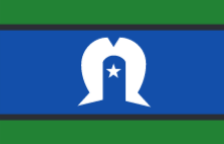
At Sydney International School of Technology and Commerce (SISTC) our courses put you at the heart of the field that is driving our world forward. We have designed our Bachelor of Information Technology course so that if you want to be a cyber security analyst, network engineer, data analyst, software developer, IT project manager, business analyst, design multimedia experiences, or develop smart systems for the future, this course will give you the technical, analytical and creative skills to develop solutions, innovate and be successful in the information economy.
Topics include an in-depth exploration of IT infrastructure technologies; the technical and business elements required to analyse, design, implement, manage, and support complex IT resources; transformative business solutions; enterprise architecture; networks, virtual and cloud-based deployment.
Bachelor of Information Technology (BIT)
Choice of two Majors:
Business Information Systems BIT(BIS)
The major in Business Information Systems (BIS) provides depth in business intelligence, business process improvement and social media strategy.
The major in Digital Enterprise (DEN) provides depth in network administration, cloud infrastructure and virtual systems and services.
Our graduate attributes represent the graduate qualities and skills that our students to develop throughout their course of study.
- Demonstrate discipline knowledge and skills applied in professional contexts.
- Help build successful businesses through innovation and entrepreneurship.
- Communicate confidently to culturally diverse business audiences through multiple media.
- Solve problems independently and as part of a team using evidence and creative thinking.
- Act with professional integrity and promote ethical practice in work and business.
- Display resilience and adaptability in response to new challenges, unfamiliar work and cultural environments and new types of problem.
- Demonstrate appropriate knowledge and understanding of ICT infrastructure technologies and explain the relationships and interdependencies between these. (ACSGA2)
- Skill and ability to identify the need for transformative digital solutions, especially those relating to provision of ICT systems and infrastructure, elicit requirements from relevant stakeholders and research and plan solutions to meet these requirements. (GA1, GA5, ACSGA1, ACSGA3)
- Demonstrate problem-solving skills to apply contemporary technologies to previously unseen problems in innovative ways when implementing, maintaining, documenting, and troubleshooting systems. (GA3, GA5, ACSGA1, ACSGA3, ACSGA4)
- Assess and analyse the appropriateness of competing methodologies and technologies for the analysis, design, and implementation of ICT solutions, including consideration of alternative approaches to enterprise architecture and ICT procurement. (ACSGA1, ACSGA3, ACSGA4)
- Plan and deploy secure network systems utilising current practices in IP technologies, network security, and scalable server deployment, considering issues of virtualisation and cloud deployment. (ACSGA2)
- Communicate effectively in English in a professional context, adapt interaction style to a given audience, work efficiently in a team, and identify and address pertinent legal, social, and ethical issues in particular ICT contexts. (GA2, GA4, ACSGA3)
- Offer computer support services to individuals and small to medium sized enterprises, as well as becoming employed as a computer services professional in an organisation. (GA1, ACSGA1).
Bachelor of Information Technology (BIT) - Majoring in Business Information Systems BIT(BIS)
web pages.
Bachelor of Information Technology (BIT) - Majoring in Digital Enterprise BIT(DEN)
web pages.
General admission
- have attained 18 years of age on commencement of studies
- Australian Senior secondary qualifications (New South Wales Higher School Certificate, ACT Year 12 Certificate, Queensland Senior Examination, South Australian Certificate of Education, Tasmanian Certificate of Education, Victorian Certificate of Education, Western Australian Year 12) with a minimum ATAR of 60; or
- overseas secondary qualifications for meeting the admission requirements are listed in Appendix B. or
- VET Certificate III or above in a relevant discipline; or.
- satisfactory completion of at least one year of accredited full-time study at a registered institute of higher education at AQF level 4 or above in Australia; or
- completion of an Australian University Enabling Program, or
- credit granted under the SISTC Credit Transfer and Advanced Standing Policy.
School leavers
Australian Senior secondary qualifications as listed above with a minimum ATAR of 60.
International Students English Langauge Requirements
Applicants require one of the following, completed within the last 2 years:
- IELTS Academic: 6.0 with no band less than 6.0; or
- TOEFL: 536 or better; or
- TOEFL IBT (International Benchmark Test): 74 or better; or
- TOEFL CBT (Computer Based Test): 203 or better; or
- Academic PTE (Pearson Test of English): 50 or better; or
- Cambridge English: CAE and CPE (from 2015): 169 or better; or
- General Certificate of Education (GCE): A Levels with a C or better in English; or
- KITE: all bands B2 with a result greater than 425 in each band; or
- Duolingo: overall 105 with no band less than 90. or
- completed 12 months of study in Australia.
Applicants require an IELTS Test Score result of minimum 6.0, with no band lower than 6.0 (or equivalent TOEFL or Pearson Test for English).
Special and/or alternative entry
This includes mature age applicants and/or those who do not hold their HSC or equivalent. In the event that individuals without HSC or equivalent apply for admission, they are considered on the basis of credit granted under the SISTC Credit Transfer and Advanced Standing Policy. The school may also administer such procedures as tests and interviews
Genuine Student (GS) and Financial Requirements
International Students applying from offshore will be required to meet GS and financial requirements. The GS check is to ensure the student genuinely intends to stay in Australia temporarily to complete their chosen course of study.
Students must also be able to show sufficient financial resources to cover travel to Australia and 12 months of living costs and course fees for the student and any accompanying family members. The checks may also include an interview with the student to confirm their knowledge of study in Australia, their obligations under a student visa and their understanding of SISTC and the course they are planning to undertake.
Applicants for the Bachelor of Information Technology are assumed to have a knowledge of Mathematics at least at the standard of Australian Year 11 attainment.
Our fees and charges are set periodically by our Board of Directors.
How to PayIt is easy to pay your fees to Sydney International School of Technology and Commerce. You'll find various fee payment options when you receive your application to study with us.
Fees and Charges ScheduleView our Fees and Charges Schedule
On completion of the Bachelor of Information Technology, some potential jobs you might consider.
Potential jobs:
- Software Developer, Computer Programmer, Software Engineer:
These roles involve creating computer programs - Web Developer:
Focused on developing web applications for client-server communication - Systems Analyst:
Utilises expertise to create or modify existing systems for improved technical efficiency - Business Analyst:
Develops and modifies practical business solutions using IT tools - Cybersecurity Analyst:
Works on identifying, analysing, predicting, and preventing cybersecurity threats - Database Administrator:
Responsible for organising and managing data using specialised software - Network Administrator:
Maintains computer infrastructure and networks - Network Engineer:
Designs, constructs, and maintains computer networks - Software Architect:
Involved in creating and designing comprehensive systems - IT Project Manager:
Oversees IT projects, ensuring they are completed on time and within budget - IT Support Specialist:
Offers technical assistance and troubleshooting for computer systems and software - Cloud Architect:
Designs and implements cloud-based solutions for businesses - Data Scientist:
Analyses and interprets complex data to inform business decisions - UX/UI Designer:
Designs user interfaces and experiences for software and web applications.

Melbourne or Sydney Australia


